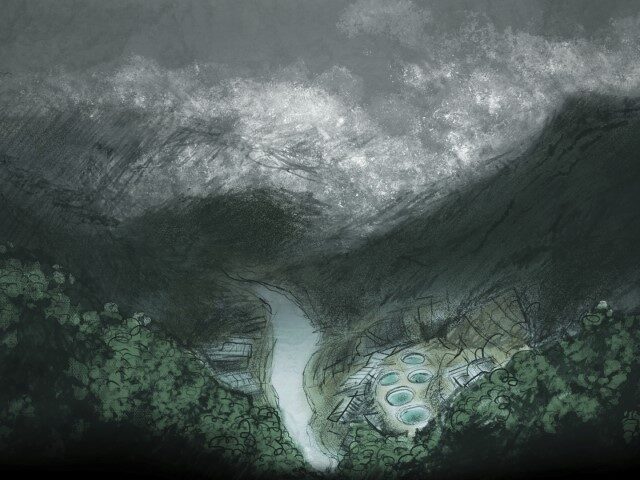Chinese-owned companies in Myanmar are allegedly responsible for illegal mining operations that are destroying the natural landscape of Myanmar’s border region with China, local miners of dysprosium and terbium — two heavy rare earth minerals used in clean energy products and smart electronics — told the organization Global Witness for a report published on Tuesday.
Global Witness revealed on August 9 how illicit rare earth mining allegedly supported by Chinese businessmen in Myanmar has ravaged a mountainous border region called Kachin Special Region 1, writing:
For Zau*, a local worker, the mining boom is a rare chance to make money. He is paid 3,800 yuan ($600) in cash every month, around twice the average salary in Myanmar. He works in the shadows, at a mine near the Chinese border, for a company that has no permits. On paper, Sin Kyaing Company is owned by a local militia leader called Lagwi Bawm Lang. But like other Burmese [from Myanmar] companies in the rare earth mining industry, it is really a front for illegal investment by Chinese businesspeople.
Zau’s job is to remove vegetation and drill holes into the mountains. Then ammonium sulphate solution is injected into the holes, effectively liquefying the earth. Once the chemicals have percolated through the mountainside, the solution is drained into bright blue collection pools, where minerals are precipitated out in a process called in-situ leaching. After this mountain has been leached, Zau and his colleagues will abandon the contaminated site, moving to the next place and starting all over again.
Zau works for a company that specifically mines dysprosium and terbium. An unidentified industry expert told Global Witness for its August 9 report that the two highly valuable rare earth metals are “basically irreplaceable” because the global supply chain relies on them for most modern electronic products, including smartphones, smart home devices, and electric vehicles. An estimated 90 percent of dysprosium and terbium’s value comes from their use in permanent magnets. These magnets are crucial to the manufacture of motors and generators used to build electric vehicles and wind turbines.
Myanmar’s Kachin Special Region 1 has reportedly become the world’s largest supplier of dysprosium and terbium in recent years, despite the fact that mining such rare earth minerals in Myanmar is technically illegal. Global Witness explained the contradiction by noting that the region “is a semi-autonomous territory run by militias that are affiliated to Myanmar’s brutal military regime. The mining is illegal under Myanmar’s laws, and hardly exists on paper.”
“Yet the damage that global demand for products manufactured by international companies is fuelling in this remote, lawless part of the world is all too real for the communities who are now risking their lives to defend their land,” according to the organization.
Radio Free Asia (RFA) reported on the phenomenon in March, observing the following:
The border between Kachin State and China was temporarily closed in early 2020 at the height of a major COVID-19 [Chinese coronavirus] outbreak, but it reopened last November. During the closure, 3,000 to 4,000 tons of rare earth ore mined in Myanmar were found stranded at the border.
When the closure was lifted, a manager of a Chinese state-owned mining company based in Guangzhou on Dec 2 said all the ore was trucked to Jiangxi province, China’s Global Times reported.
The U.S. Geological Survey estimated that about 240,000 tons of rare earth minerals were mined globally in 2020, with China accounting for 140,000 tons, followed by the United States with 38,000 tons and Myanmar with 30,000 tons.
The U.S. government-funded RFA noted that China purchases rare dysprosium and terbium ore from neighboring Myanmar to exploit its “cheaper” or illegal labor.

COMMENTS
Please let us know if you're having issues with commenting.